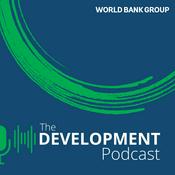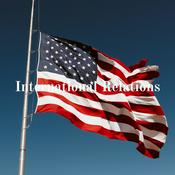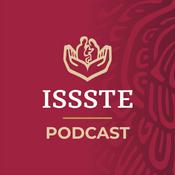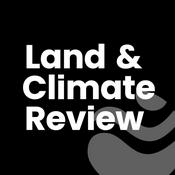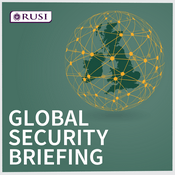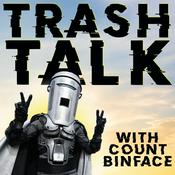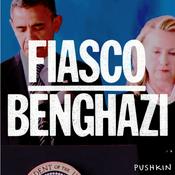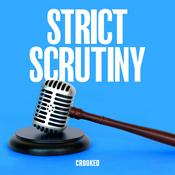The Healthcare Policy Podcast ® Produced by David Introcaso
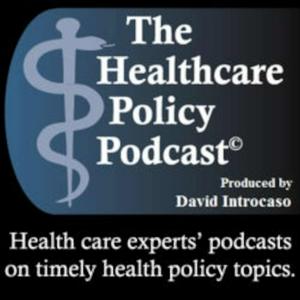
327 episodios

Child Psychiatrist Frank Putnam Discusses His Soon-To-Be-Published book, "Old Before Their Time, A Scientific Life Investigating How Maltreatment Harms Children and the Adults They Become"
04/12/2025 | 40 min
At least one in four girls suffers childhood sexual abuse. For example, the Department of Justice (DoJ) concluded Jeffery Epstein trafficked over 1,000 girls, some as young as 14. Nevertheless, six years after Epstein’s reported suicide, the Trump Administration’s 2026 budget proposes to entirely delete a subsection of federal law that requires DoJ’s Office of Violence Against Women to be “a separate and distinct office” and proposes to cut the Office of Violence Against Women’s budget by nearly 30%. Per the CDC’s Adverse Childhood Experiences (ACEs) study, launched over 25 yrs ago, at least 1 in 4 girls and 1 in 20 boys are sexually abused. Among numerous other sobering stats, ACEs-related health consequences cost the US an estimated $14.1 trillion dollars annually in direct medical spending and lost healthy-life years. Dr. Frank Putnam, a child and adolescent psychiatrist at the U. of North Carolina’s Medical School who has spent his 35-year professional life investigating the effects of childhood sexual abuse on child development and adult outcomes, has recently completed “Old Before their Time” an autobiographical account of his research work and findings. In Dr. van der Klok’s introduction to the book, he states childhood sexual abuse “embeds itself in a child’s mind, body and behavior and is expressed across generations.” Deterrence “is the most powerful target for the prevention of mental illness and for reducing premature death from common illnesses.”Information regarding “Old Before Their Time” is at: https://www.amazon.com/Old-Before-Their-Time-Investigating/dp/1032974826. Dr. Frank Putman’s bio is at: https://www.med.unc.edu/psych/people/frank-w-putnam-md/. This is a public episode. If you would like to discuss this with other subscribers or get access to bonus episodes, visit www.thehealthcarepolicypodcast.com

Harvard Professor Eram Alam Discusses Her Just-Published Book, "The Care of Foreigners, How Immigrant Physicians Changed US Healthcare"
25/11/2025 | 34 min
The US has effectively always suffered a physician shortage. Last year the AMA estimated a shortage of 86,000 by 2035. US policymakers have since 1965 addressed this problem by recruiting foreign born physicians (termed Foreign Medical Graduates or FMGs), mostly from Southeast Asia, largely India. Today FMEs, that account for 25-30% of the physician workforce, are disproportionately employed in Health Professional Shortage Areas or HPSAs in which there remains or persists a strong demand, e.g., HRSA recognizes over 7,500 primary care HPSAs. Nevertheless, Prof. Alam concludes stratifying our medical system can be interpreted in part as a cover up to a problem of long-term disinvestment in rural healthcare and minority health. Simply growing the work force has had, Prof Alam argues, both a minimal impact on the equitable distribution of US healthcare resources while intensifying global health inequalities resulting from substantial brain drain.Information about Prof. Alam’s book is at: https://www.press.jhu.edu/books/title/53838/care-foreigners?srsltid=AfmBOopgVAOX_1s9S7NaIMoKsXgrUS2htC4_HaE0zTYDrfQJltnIpRK7. This is a public episode. If you would like to discuss this with other subscribers or get access to bonus episodes, visit www.thehealthcarepolicypodcast.com

Georgetown Professor Linda Blumberg Discusses Commercial Health Insurance "Middlemen"
18/11/2025 | 43 min
Over roughly the past year Prof. Blumberg and her Georgetown Center for Health Insurance Reform (CHIR) colleagues have been researching healthcare providers and payers increasing use of third-party entities they collectively termed “middlemen” with whom providers and payers contract to provide various supportive administrative or financial services. For example, payers frequently use of Third Party Administrators/TPAs and providers of Revenue Cycle Managers/RCMs. The use of middlemen is a problem because these entities are “rent seeking,” meaning they profit without creating new or additional value, thereby reducing economic efficiency and competition and driving prices up. In CHIR’s October report titled, The Complex Web of HC Fin Interests & Their Implication for Even Higher Spending,” Prof. Blumberg and her colleagues concluded relationships with middlemen have “resulted in a complex web of cost increasing incentives, money flows, and conflicts of interest. The complexity is so tremendous that it is virtually impossible to capture the entire picture of the existing financial relationships.” (Listeners may recall interviewed Leigh’s Prof. Katz-Olson in March 2022 regarding her related work, “Ethically Challenged, PE Storms US Health Care.” CHIR writings discussed during this interview include:https://chir.georgetown.edu/events/why-health-care-costs-are-rising-the-role-of-corporatization-and-bipartisan-solutions-to-increase-affordability/https://chir.georgetown.edu/events/why-health-care-costs-are-rising-the-role-of-corporatization-and-bipartisan-solutions-to-increase-affordability/https://chir.georgetown.edu/evidence-on-private-equity-suggests-that-containing-costs-and-improving-outcomes-may-go-hand-in-hand/https://chir.georgetown.edu/third-party-administrators-the-middlemen-of-self-funded-health-insurance/https://chir.georgetown.edu/independent-dispute-resolution-process-2024-data-high-volume-more-provider-wins/CHIR’s publication page is at: https://chir.georgetown.edu/search/?filter=publications This is a public episode. If you would like to discuss this with other subscribers or get access to bonus episodes, visit www.thehealthcarepolicypodcast.com

Prof. Troy Brennan Discusses His Just-Published, "Wonderful and Broken, The Complex Reality of Primary Care in the US"
06/11/2025 | 40 min
Even though PC is the only component of healthcare shown to increase life expectancy and is crucial to achieving healthcare equity, outcomes, quality and value PC remains on life support. For example, an August National Academy of Medicine report concluded, “despite PC’s essential value for the health of the nation, more than 100 million people across rural and urban communities in the US are experiencing a calamitous lack of access to primary care.” Among numerous problems: PC accounts for less than 5% of total healthcare spending; there are too few primary care clinicians and too many, at 7,501, HRSA PC shortage areas; PC clinicians are inadequately reimbursed and maldistributed. Consequently, PC struggles to adequately address prevention, the social determinants of health, integrate care particularly behavioral health services and ultimately achieve optimal value. In “Wonderful and Broken,” Prof. Brennan discusses how PC care can be improved and organizations that are at least on the path toward stable and effective PC delivery. (Listeners may recall I interviewed Prof. Brennan in October 2024 regarding his just published previous work, “The Transformation of American Health Insurance” & that this is at least my 5th PC discussion dating back to 2013.)Information on Prof Brennan’s book is found at: https://www.press.jhu.edu/books/title/54051/wonderful-and-broken?srsltid=AfmBOor4SJMCBvCYWck_6Aobdxk-ZUJgusnceOxxT-eghoU8CkPc3kMl. This is a public episode. If you would like to discuss this with other subscribers or get access to bonus episodes, visit www.thehealthcarepolicypodcast.com

Dr. Sachin Jain Discusses Ethical Erosion in Healthcare
22/10/2025 | 33 min
Because healthcare today can be increasingly defined as commodified, expedient, financialized, myopic, reductionist and failing to transcend politics, the question of healthcare’s ethics or the roll ethics plays should play is increasingly begged. For example, last October Health Affairs launched an “Ethics and Health Systems Change” series that to date has simply complained about private equity and corporate medicine, federal immigration and gender care policies and de-professionalization. What fidelity does healthcare have to normative ethics when, for example, 27 million Americans and counting are uninsured, over 100 million lack a primary care provider and over 90 million cannot afford care if they needed today. Dr. Jain, President and CEO of the SCAN Group and SCAN Health Plan, discusses the causes of healthcare’s ethical erosion and how begged ethical issues or questions can be addressed. The two Forbes articles authored by Dr Jain and discussed during this interview are at: https://www.forbes.com/sites/sachinjain/2025/09/22/ethical-erosion-how-good-people-lose-their-way-in-healthcare/ and https://www.forbes.com/sites/sachinjain/2025/01/21/who-me-ethical-erosion-and-the-deafening-silence-of-americas-healthcare-leaders/. This is a public episode. If you would like to discuss this with other subscribers or get access to bonus episodes, visit www.thehealthcarepolicypodcast.com
Más podcasts de Gobierno
Podcasts a la moda de Gobierno
Acerca de The Healthcare Policy Podcast ® Produced by David Introcaso
Escucha The Healthcare Policy Podcast ® Produced by David Introcaso, Podcast Axel Kaiser y muchos más podcasts de todo el mundo con la aplicación de radio.net

Descarga la app gratuita: radio.net
- Añadir radios y podcasts a favoritos
- Transmisión por Wi-Fi y Bluetooth
- Carplay & Android Auto compatible
- Muchas otras funciones de la app
Descarga la app gratuita: radio.net
- Añadir radios y podcasts a favoritos
- Transmisión por Wi-Fi y Bluetooth
- Carplay & Android Auto compatible
- Muchas otras funciones de la app


The Healthcare Policy Podcast ® Produced by David Introcaso
Descarga la app,
Escucha.





